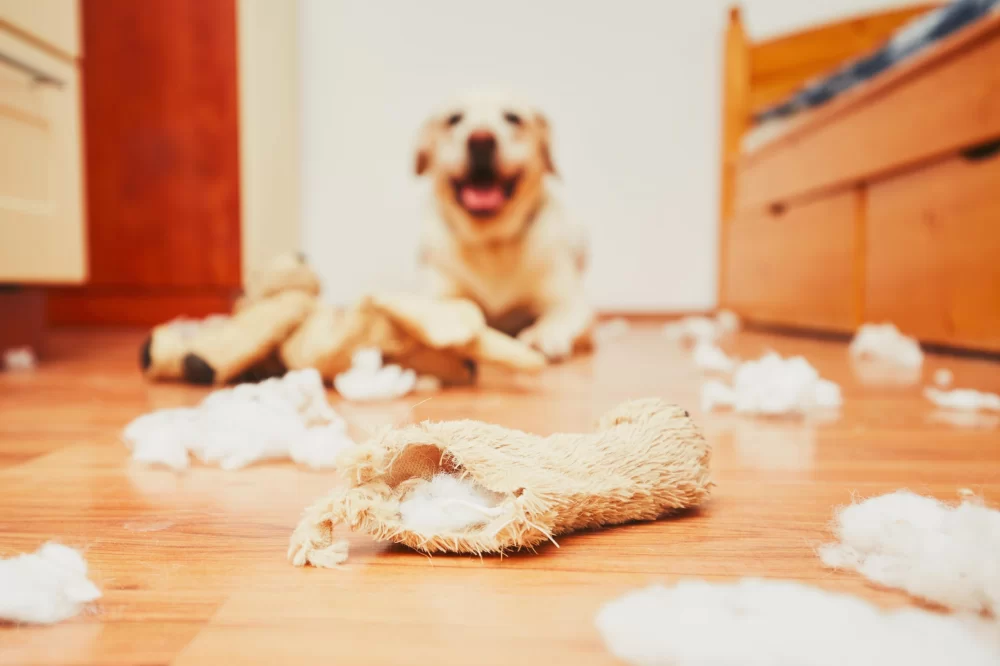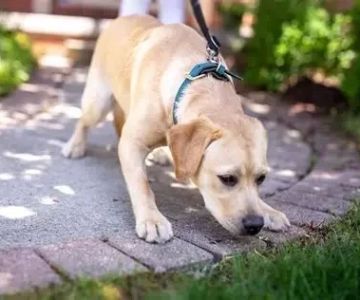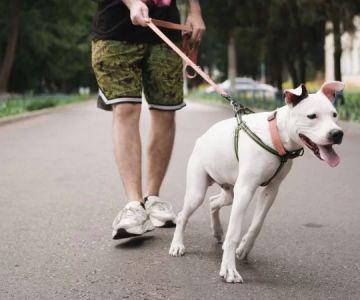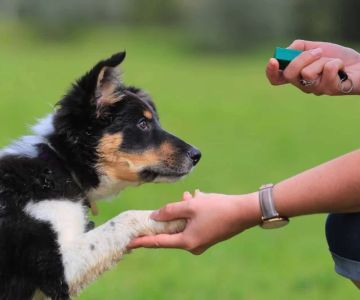- Understanding Dog Destructive Behavior
- Common Causes of Dog Destruction at Home
- Identifying Signs of Destructive Behavior in Dogs
- Effective Strategies to Stop Dog Destruction
- Providing Alternatives to Destructive Behavior
- Ensuring Adequate Exercise and Mental Stimulation
- Using Positive Reinforcement to Curb Destructive Behavior
- Getting Professional Help for Dog Behavior Issues
- Hidden Brook Veterinary Care: Expert Guidance
Understanding Dog Destructive Behavior
Dealing with a dog’s destructive behavior can be challenging, but understanding why your dog is behaving this way is the first step toward finding a solution. Destructive behavior in dogs can manifest as chewing on furniture, scratching the floor, digging, or tearing up household items. While these behaviors can be frustrating, they often stem from deeper issues such as anxiety, boredom, or a lack of proper training. Understanding the root cause of your dog's behavior will help you implement the most effective strategies for stopping it.
Common Causes of Dog Destruction at Home
Dogs can become destructive for various reasons, and identifying the underlying cause is essential to stopping it. Here are some common reasons why dogs engage in destructive behavior:
1. Anxiety and Stress
Many dogs act out of anxiety or stress. Separation anxiety is a common trigger, where dogs destroy objects to cope with the stress of being left alone. They may chew or scratch on furniture, doors, or windows as a form of self-soothing.
2. Boredom
Dogs that don’t receive enough stimulation—either mentally or physically—are more likely to become bored and engage in destructive behavior. This includes chewing, digging, or even tearing up things around the house as a way to pass the time.
3. Lack of Training
If a dog hasn’t been taught what is acceptable and what is not, they may resort to chewing on shoes, furniture, or other objects. Lack of proper training is one of the primary reasons why dogs develop destructive behaviors.
4. Natural Instincts
Dogs, especially puppies, have a natural instinct to chew. It’s part of their developmental process and can also serve as a way for them to relieve teething discomfort.
Identifying Signs of Destructive Behavior in Dogs
Destructive behavior in dogs is often more than just the occasional chewing or scratching. Recognizing the early signs of a problem can help you address it before it becomes a bigger issue. Some signs of destructive behavior include:
- Excessive chewing on furniture, shoes, or household items
- Digging in the yard or inside the house
- Scratching doors, walls, or furniture
- Restlessness or signs of anxiety when left alone
- Shredding paper or fabric
If your dog is showing any of these signs regularly, it's important to take action to manage their behavior and prevent further damage to your home.
Effective Strategies to Stop Dog Destruction
Addressing destructive behavior in dogs requires consistent effort and the implementation of effective strategies. Here are some tips to help you stop your dog from being destructive at home:
1. Create a Structured Routine
Dogs thrive on routine, so establishing a consistent schedule for meals, walks, and playtime can help reduce anxiety and boredom. A structured routine gives your dog a sense of stability and purpose, which can curb destructive behavior.
2. Provide Adequate Exercise
Physical activity is essential for dogs to burn off excess energy. Ensure that your dog gets plenty of exercise through daily walks, playtime, or even dog sports. A tired dog is less likely to engage in destructive behavior.
3. Use Crate Training
Crate training can be an effective way to prevent your dog from getting into trouble when you’re not home. A crate can serve as a safe and secure space for your dog, and it prevents them from destroying furniture or other objects while you’re away.
Providing Alternatives to Destructive Behavior
One of the most effective ways to stop a dog from being destructive at home is to provide alternatives that satisfy their natural instincts. Here are some ideas:
1. Chew Toys
Provide your dog with plenty of appropriate chew toys. Dogs have a natural need to chew, so having designated toys will satisfy that urge and prevent them from chewing on furniture or shoes.
2. Puzzle Games
Interactive puzzle games and treat-dispensing toys provide mental stimulation and can keep your dog occupied for extended periods. These toys engage your dog’s brain and can reduce boredom-related destruction.
3. Digging Zones
If your dog loves to dig, designate an area in the yard where it’s okay for them to dig. This can redirect their digging behavior from your garden or furniture to a more appropriate space.
Ensuring Adequate Exercise and Mental Stimulation
Providing both physical and mental exercise is key to preventing destructive behavior. Physical exercise such as walks, runs, or play sessions is essential to keep your dog physically tired. However, mental stimulation is just as important. Consider the following to keep your dog engaged:
- Training sessions to teach new tricks
- Interactive toys and games
- Socialization with other dogs
A dog that is both mentally and physically stimulated will be less likely to engage in destructive behavior.
Using Positive Reinforcement to Curb Destructive Behavior
Positive reinforcement is one of the most effective ways to address destructive behavior in dogs. By rewarding your dog for good behavior, you can teach them what is acceptable. Here’s how to use positive reinforcement:
1. Reward Calm Behavior
Whenever your dog is calm and behaving appropriately, be sure to praise them and offer treats. This will reinforce good behavior and help your dog associate calmness with rewards.
2. Redirect Destructive Behavior
If your dog begins to chew or engage in destructive behavior, gently redirect them to a more appropriate activity, like chewing on a toy. Reward them for making the right choice.
Getting Professional Help for Dog Behavior Issues
If your dog’s destructive behavior continues despite your efforts, seeking professional help may be necessary. A certified dog trainer or behaviorist can assess the situation and create a tailored plan to address the root causes of your dog’s destruction. Sometimes, underlying medical issues or severe anxiety require professional intervention.
Hidden Brook Veterinary Care: Expert Guidance
If you're struggling with your dog’s behavior and need professional support, Hidden Brook Veterinary is here to help. Our team of experts can assist with behavioral issues and provide personalized advice to stop destructive behavior in your pet. Contact us today for the best solutions to manage your dog’s behavior and ensure a happier, more peaceful home environment.












